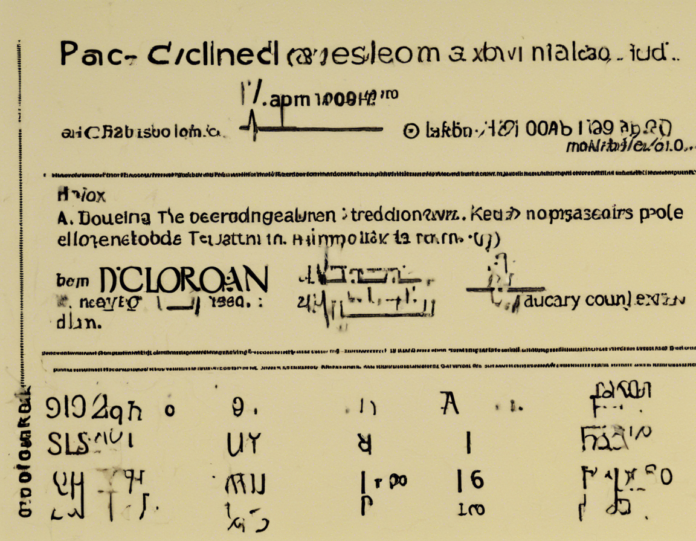Dicloran A tablets are a commonly used medical product that is known for its wide range of applications. From pain relief to managing various health conditions, these tablets have proven to be effective in diverse scenarios. In this comprehensive guide, we will delve into the various uses of Dicloran A tablets, how they work, potential side effects, and important considerations when using them.
Understanding Dicloran A Tablets
Dicloran A tablets are a medication comprising diclofenac sodium and paracetamol. Diclofenac sodium is a nonsteroidal anti-inflammatory drug (NSAID) that possesses analgesic, anti-inflammatory, and antipyretic properties. Paracetamol, on the other hand, is a fever reducer and pain reliever. The combination of these two active ingredients in Dicloran A tablets makes them effective in managing pain and inflammation associated with various conditions.
Uses of Dicloran A Tablets
1. Pain Relief:
Dicloran A tablets are primarily used for the relief of mild to moderate pain such as headache, toothache, musculoskeletal pain, and menstrual cramps.
2. Inflammatory Conditions:
Due to the anti-inflammatory properties of diclofenac sodium, Dicloran A tablets are effective in managing inflammatory conditions like arthritis, tendonitis, and bursitis.
3. Fever Reduction:
The paracetamol component in Dicloran A tablets helps in reducing fever associated with infections or inflammatory conditions.
4. Postoperative Pain:
These tablets are also prescribed to manage pain following surgical procedures.
How Dicloran A Tablets Work
Dicloran A tablets work by inhibiting the production of prostaglandins in the body. Prostaglandins are chemicals that are released in response to injury or certain diseases and are responsible for causing pain, inflammation, and fever. By inhibiting the action of these prostaglandins, diclofenac sodium in Dicloran A tablets helps in reducing pain and inflammation. Paracetamol complements this action by acting on the central nervous system to inhibit the production of prostaglandins in the brain, thereby reducing fever and pain perception.
Dosage and Administration
It is crucial to follow the prescribed dosage and administration instructions provided by your healthcare provider when taking Dicloran A tablets. The dosage may vary depending on the severity of the condition being treated and individual patient factors. Dicloran A tablets are typically taken orally with a full glass of water, with or without food. It is important not to crush or chew the tablets but to swallow them whole.
Potential Side Effects
While Dicloran A tablets are generally well-tolerated, they may cause some side effects in certain individuals. Common side effects of these tablets may include:
- Gastric irritation: Diclofenac sodium can sometimes irritate the stomach lining, leading to symptoms like heartburn, indigestion, or stomach pain.
- Nausea and vomiting: Some individuals may experience nausea or vomiting while taking Dicloran A tablets.
- Skin rash: Allergic reactions to the ingredients in the tablets can manifest as skin rashes.
- Headache: Occasionally, individuals may experience headaches as a side effect of these tablets.
If you experience any severe or persistent side effects while taking Dicloran A tablets, it is important to consult your healthcare provider immediately.
Precautions and Considerations
Before taking Dicloran A tablets, it is essential to consider the following precautions:
- Allergies: If you are allergic to diclofenac sodium, paracetamol, or any other ingredients in Dicloran A tablets, inform your healthcare provider.
- Medical Conditions: Inform your healthcare provider about any medical conditions you have, especially if you have a history of gastrointestinal disorders, liver or kidney disease, or cardiovascular conditions.
- Pregnancy and Breastfeeding: Dicloran A tablets should be used with caution during pregnancy and breastfeeding, as certain components may pass into breast milk or affect the fetus.
- Drug Interactions: Inform your healthcare provider about any other medications, supplements, or herbal products you are taking to avoid potential drug interactions.
Frequently Asked Questions (FAQs)
1. Can Dicloran A tablets be taken for a prolonged period?
Dicloran A tablets should be taken for the shortest duration necessary to relieve symptoms. Prolonged use may increase the risk of side effects.
2. Are Dicloran A tablets addictive?
Dicloran A tablets are not known to be addictive when taken as prescribed by a healthcare provider.
3. Can Dicloran A tablets be taken on an empty stomach?
While Dicloran A tablets can be taken with or without food, taking them with food can help reduce the risk of stomach irritation.
4. How quickly do Dicloran A tablets work?
The onset of action of Dicloran A tablets varies but they typically start to work within 30 minutes to an hour after ingestion.
5. Can Dicloran A tablets be taken with other pain medications?
It is important to consult your healthcare provider before taking Dicloran A tablets with other pain medications to avoid potential drug interactions.
6. What should I do if I miss a dose of Dicloran A tablets?
If you miss a dose of Dicloran A tablets, take it as soon as you remember. However, if it is almost time for your next dose, skip the missed dose and continue with your regular dosing schedule.
7. Are there any specific storage instructions for Dicloran A tablets?
Dicloran A tablets should be stored at room temperature away from moisture and heat. Keep them out of reach of children.
8. Can Dicloran A tablets be crushed or split for easier ingestion?
Dicloran A tablets should not be crushed or split as they are designed for oral administration in their whole form.
9. What should I do if I experience severe side effects while taking Dicloran A tablets?
If you experience severe side effects such as difficulty breathing, chest pain, or severe skin reactions, seek immediate medical attention.
10. Are there any age restrictions for taking Dicloran A tablets?
Dicloran A tablets should be used with caution in elderly patients and children, as they may be more susceptible to certain side effects.
In conclusion, Dicloran A tablets are a versatile medication used for pain relief, inflammation management, and fever reduction. Understanding their uses, working mechanism, potential side effects, dosage guidelines, and precautions is essential for safe and effective use. If you have any further questions or concerns about Dicloran A tablets, do not hesitate to consult your healthcare provider for personalized advice and guidance.

